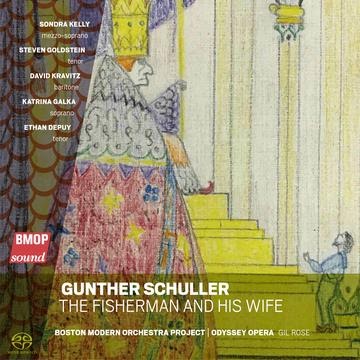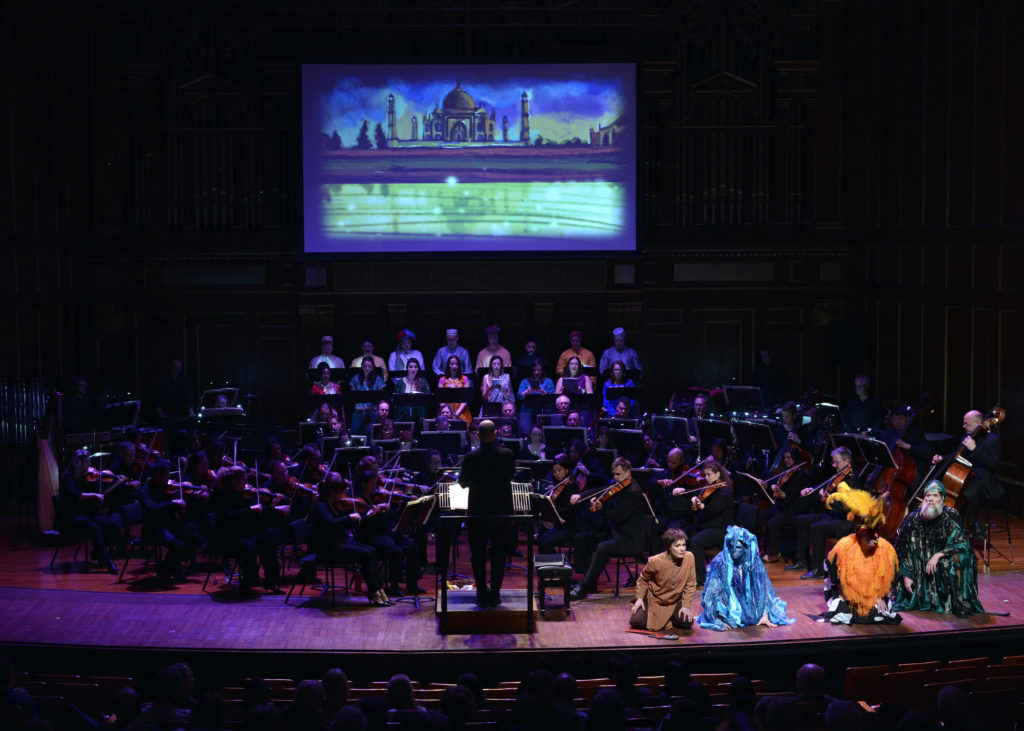
Boston Modern Orchestra Project and Odyssey Opera Release Schuller’s “The Fisherman and His Wife”
Presented by Boston Modern Orchestra Project and Odyssey Opera
Gunther Schuller: The Fisherman and His Wife (#1970)
Opera by Gunther Schuller
Libretto by John Updike
Based on a fairy tale by the Brothers Grimm
Conducted by Gil Rose
Featuring: Sondra Kelly (mezzo-soprano), Steven Goldstein (tenor), David Kravitz (baritone), Katrina Galka (soprano), Ethan Depuy (tenor)
Release Date: April 7, 2020
Available to purchase HERE
Review by Kitty Drexel
Boston, MA — The opening bars of Gunter Schuller’s The Fisherman and His Wife sound like the scoring for an episode of the Stark Trek: The Original Series. Not the opening theme song famous for it’s 70s crooning lounge jam. The organ, shivering strings, and cacophony coming from the woodwinds remind me of composer Fred Steiner’s work in the episode, “The Corbomite Maneuver.”
Gunter’s work doesn’t politely introduce its listener to his opera. We’re introduced to a dire world of conflict from the opening chords. The orchestra paints an uneasy ocean with low tones and dissonance. We’re caught in a negative reverie until a forceful “Meow!” (Katrina Galka as the cat) breaks the atmospheric tension caused by the orchestra. This small world hides stark unhappiness that unravels toward the ear in rumbling phrases. Continue reading
